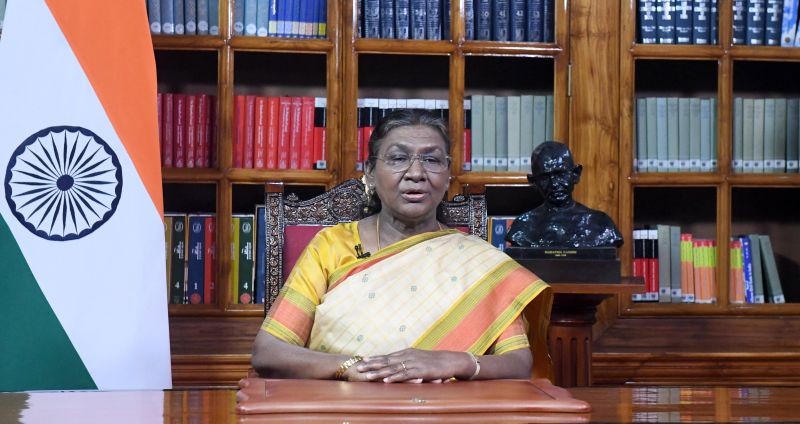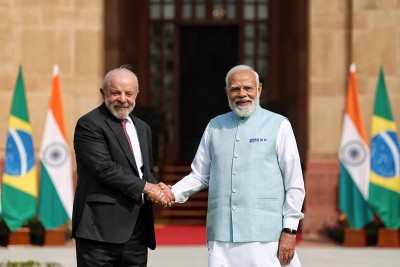 TN Verdict Row
TN Verdict Row
'Can timelines be imposed?': President Murmu's question to Supreme Court on Tamil Nadu verdict
New Delhi/IBNS: President Droupadi Murmu has questioned the Supreme Court whether "timelines" can be imposed on the Constitutional head of the country or any respective state in view of the Tamil Nadu verdict passed by the highest level of judiciary last month, media reports said.
Murmu asked the Supreme Court under Article 143 of the Constitution that empowers the President to consult the court on legal issues or matters of public importance.
The President wrote to the top court as quoted by NDTV, "Is the Governor bound by the aid and advice tendered by the Council of Ministers while exercising all the options available with him when a Bill is presented before him under Article 200 of the Constitution of India?"
She added, "In the absence of a constitutionally-prescribed timeline and the manner of exercise of powers by the President, can timelines be imposed and the manner of exercise be prescribed through judicial orders for the exercise of discretion by the President under Article 201 of the Constitution of India?"
Favouring the Tamil Nadu government, the Supreme Court last month passed a judgement ruling state Governor RN Ravi's decision to withhold his assent to 10 key bills was "illegal" and "arbitrary".
The top court said it was illegal for the Governor to reserve bills for the President after withholding assent.
The court said the Governor should have given his assent to the bill when it was re-presented to him by the assembly.
Citing the Constitution, the court said the Governor can give his assent, withhold assent or reserve the bill for President's consideration.
The Governor can send back the bill to the House or Houses for a reconsideration of some of its provisions but if the assembly re-sends the bill, the Constitutional head will have no choice but to give his assent.
The Governor can reserve the bill for the President's consideration if he finds it is contradictory to the Constitution, directive principles of state policy or matters of national importance.
The court said in this case the Governor should not have withheld the bill.
The country's ruling Bharatiya Janata Party (BJP), which is a small opposition party in Tamil nadu, has criticised the Supreme Court's recent verdict, particularly regarding the ruling that set deadlines for Governors and the President to clear state bills.
BJP MP Nishikant Dubey expressed strong disapproval, arguing that the court was "crossing its limits" by imposing such directives.
His remarks have sparked reactions from opposition leaders, including AIMIM's Asaduddin Owaisi, who accused the country's ruling camp of undermining judicial independence.
However, then Tamil Nadu BJP chief K. Annamalai had taken a more measured stance, stating that the verdict was not a setback but rather an affirmation of constitutional due process.
Support Our Journalism
We cannot do without you.. your contribution supports unbiased journalism
IBNS is not driven by any ism- not wokeism, not racism, not skewed secularism, not hyper right-wing or left liberal ideals, nor by any hardline religious beliefs or hyper nationalism. We want to serve you good old objective news, as they are. We do not judge or preach. We let people decide for themselves. We only try to present factual and well-sourced news.






